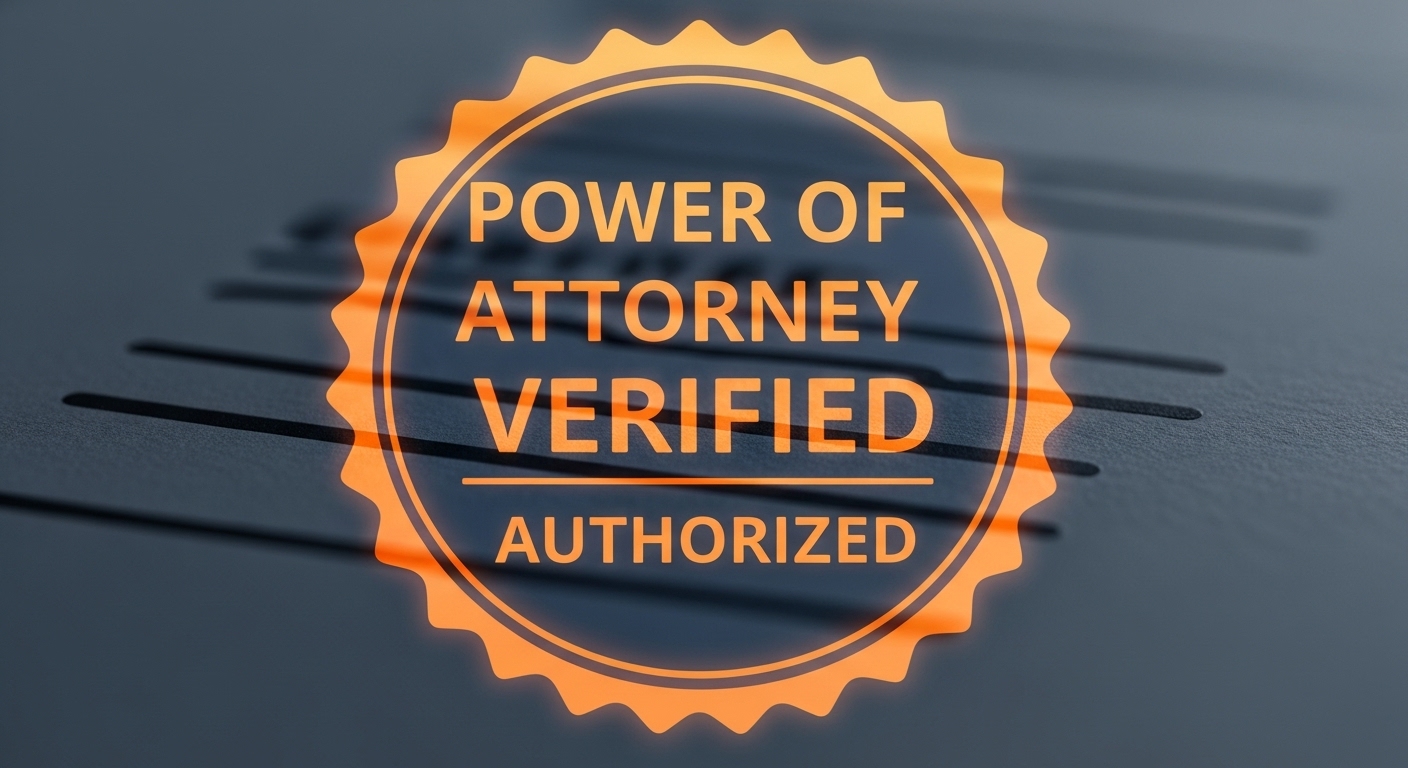
Power of Attorney in Shipping – What It Is and Why It Matters
Trade Compliance
Importer of Record (IOR)
Exporter of Record (EOR)
Freight Forwarding

Most customs delays don’t happen because something went wrong—they happen because something wasn’t authorized. A customs broker can’t file your entry, a forwarder can’t resolve an inspection, and an IOR can’t speak to customs unless a Power of Attorney (POA) legally allows them to act for you. In international shipping, this document is often the difference between a shipment that clears in hours and one that sits accumulating storage charges.
If you want predictable timelines, fewer surprises, and a smoother customs experience, understanding the shipping POA is essential. This guide outlines exactly what it is, why it matters, and how to set it up correctly.

What Is a Power of Attorney in Shipping?
A Power of Attorney (POA) is a legal document that allows one party to authorize another to act on their behalf. In simple terms, it grants permission for someone else to perform specific actions that carry legal or financial significance.
In international logistics, a POA enables a customs broker, freight forwarder, carrier, or Importer of Record (IOR) to manage essential customs and compliance tasks on behalf of the importer, exporter, or owner of the goods. Without this authorization, many logistics partners are legally restricted from interacting with customs or submitting your declarations.
Who is involved in a shipping POA?
Principal: The importer, exporter, or legal owner of goods.
Agent: The customs broker, freight forwarder, carrier, or IOR.
Scope of authority: Preparing documents, filing declarations, paying duties/taxes, and coordinating releases.
When Do You Need a POA for International Shipping?
A POA is not required in all countries, but in most international shipping situations, it becomes either necessary or highly practical—especially when a third party needs to interact with customs on your behalf.
You typically need a POA when:
You use a customs broker or freight forwarder to clear goods.
You import into countries where brokers must hold written authorization (common across the US, EU, LatAm, and Asia).
You operate as a non-resident importer and rely on a local IOR.
You ship high-value or regulated items such as aviation parts, medical devices, IT hardware, or automotive components.
You ship frequently and need a standing (“permanent”) POA with your logistics partner.
Note:
Requirements differ by country. Always confirm local rules with your broker, IOR, or legal counsel.
What Does a Shipping POA Allow Your Agent to Do?
A POA does not give unlimited rights. It defines exactly what the agent is authorized to do, ensuring clarity, compliance, and operational control.
Typical authorities granted under a shipping POA:
Preparing and signing customs declarations.
Submitting, correcting, or amending shipment documents.
Paying duties, taxes, and government fees on your behalf.
Communicating with customs and border agencies.
Authorizing release, delivery, or redirection of cargo.
Managing amendments, post-clearance audits, or appeals.
A POA is not a commercial contract. It is simply the legal authorization that allows your broker or IOR to perform their part of the logistics process.
Key Elements of a Power of Attorney for Shipping
A shipping POA is built around a few essential components. The table below summarizes the core elements that must be present for the document to be clear, valid, and accepted by customs.
Element | What It Includes | Why It Matters |
|---|---|---|
1. Identity of Parties | - Legal name & address of Principal (importer/exporter) - Tax ID / VAT / EORI / EIN - Legal name & address of Agent (broker/forwarder/IOR) | Customs must verify who is authorizing and who is receiving authority. |
2. Scope of Authority | - Filing declarations - Submitting/amending documents - Paying duties/taxes - Communicating with customs - Requesting release/movement of goods | Defines exactly what the agent can and cannot do, preventing misuse or overreach. |
3. Operational Conditions | Shipment-specific or ongoing - Validity period - Applicable countries - Commodity/regulatory limitations | Ensures the POA is used only within approved boundaries. |
4. Legal Formalities | - Date of execution - Signature of authorized officer - Revocation terms - Notarization/witnessing (if required) | Confirms legal enforceability and prevents customs rejection. |
5. Signatory Requirements | - Directors or officers - Legal representatives - Delegated signatories with documented authority | Only the correct signatory can legally bind the company to a POA. |
Risks of Shipping Without a Power of Attorney
Shipping without a valid POA can stop a shipment at the very first customs checkpoint. Without written authorization, your broker or forwarder may be unable to act—leading to operational disruption and financial consequences.
1. Operational Risks
Customs holds or refusal to process entries
Clearance delays due to missing authorization
Shipments are being returned to the origin or rerouted
2. Financial Risks
Storage, demurrage, and detention fees
Administrative penalties or fines for unauthorized filings
Additional transport charges if the cargo must be re-exported
3. Business & Compliance Risks
Disputes between the shipper, broker, and carrier over responsibility
Inability to respond to customs queries or inspections
Reputational damage from late or failed deliveries
How to Reduce These Risks
Put POAs in place with all primary brokers, forwarders, and IOR partners.
Store all POAs in a centralized digital location for easy access.
Review POA validity regularly and update it whenever company details or partners change.
How to Set Up a Power of Attorney With Your Broker or Forwarder?
Setting up a shipping POA is usually simple if you gather the right information and clarify the scope upfront.
Steps to create a shipping POA:
Confirm if a POA is required for your destination country and your chosen agent.
Define the scope (single shipment, long-term, specific countries, or types of goods).
Prepare company information: legal name, tax IDs, and registration documents.
Review your broker’s or forwarder’s POA template for accuracy.
Sign the document (and notarize if required); ensure authorized personnel sign.
Store the POA and share it with internal logistics, compliance, and finance teams.
Periodically review POAs—especially after company restructures or new trade lanes.
FAQs
Not universally, but in most cases, customs brokers cannot legally file entries or interact with authorities without a signed POA.
Yes. Many businesses use a standing POA for repeated shipments with one provider, while others issue shipment-specific versions.
Validity depends on the duration stated in the document. Some POAs are annual; others remain in effect until revoked.
Yes. Revocation must be issued in writing and communicated to logistics partners and, if applicable, customs authorities.
No. A POA only grants authority to act. Liability still depends on the service contract, local laws, and the principal’s obligations.
